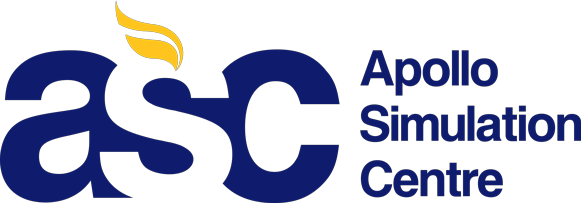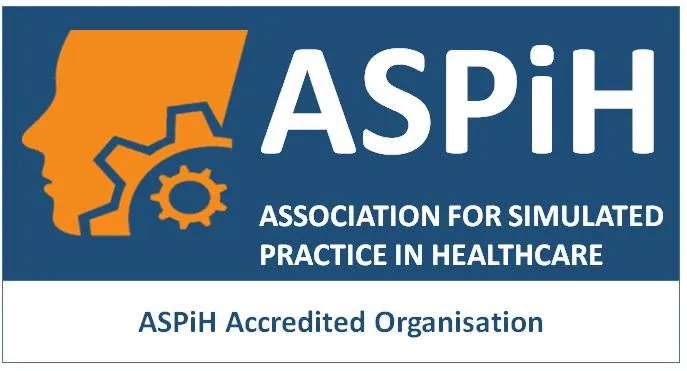
In today’s rapidly evolving healthcare landscape, reducing medical errors has become a critical focus. Simulation training, once considered an add-on tool in medical education, is now integral to preparing healthcare professionals to provide safe, effective patient care. Unlike traditional methods that rely heavily on theoretical knowledge and on-the-job experience, simulation offers a practical, hands-on approach to bridging the gap between classroom learning and real-world application.
The Growing Importance of Simulation in Medical Training
Modern healthcare is increasingly complex, demanding not only deep knowledge but also proficiency in a broad range of practical skills. Medical errors remain one of the leading causes of death globally. The World Health Organization (WHO) estimates that nearly 3 million deaths occur annually due to unsafe care in hospitals, underlining the need for better training methods.
Simulation-based training provides healthcare professionals with a risk-free environment where they can practise and refine their skills without endangering patient safety. By simulating real-life medical scenarios, trainees can learn to navigate challenges and pressures they will face in clinical practice, preparing them more thoroughly for real patient care.
Patient Safety First: Reducing Errors through Repetition
One of the most significant advantages of simulation training in healthcare is its ability to reduce medical errors through repetitive practise. In traditional medical training, opportunities to practise procedures are often limited, and mistakes can have severe consequences. Simulation, however, allows for endless repetition of procedures until proficiency is achieved, ensuring that trainees are well-prepared for real-life medical situations.
According to a study in the American Medical Association (JAMA), simulation-based training led to a 20% reduction in medical errors. This is particularly important in high-stakes fields like surgery, emergency medicine, and intensive care, where even minor mistakes can have life-threatening consequences.
- Hands-On Experience: Simulation training provides a safe space for healthcare professionals to gain hands-on experience with complex procedures. From basic interventions like intubation to advanced surgical techniques, simulation offers the opportunity for repeated practise until mastery is achieved.
- Scenario-Based Learning: Through scenario-based learning, simulation recreates real-life medical situations, allowing healthcare professionals to apply their theoretical knowledge in a practical setting. This approach not only builds technical competence but also enhances critical thinking and decision-making skills—essential qualities for responding effectively in emergencies.
- Feedback and Improvement: A key benefit of simulation training is the immediate feedback trainees receive. After each session, trainees can review their performance, identify areas for improvement, and adjust their techniques accordingly. This iterative process of learning, refining, and practicing builds confidence while reducing the chances of errors during real-life patient care.
Bridging the Gap: Enhancing Communication and Teamwork
Effective communication and teamwork are critical in ensuring patient safety. Often, medical errors arise not from a lack of knowledge, but due to communication breakdowns among healthcare team members. Simulation training is a solution that fosters interprofessional collaboration and enhances communication skills within healthcare teams.
- Team-Based Training: Simulation frequently involves entire healthcare teams, allowing members to practise working together in real-world scenarios. These scenarios, such as emergency resuscitations or surgical procedures, require coordinated teamwork, where trainees learn to communicate effectively, delegate tasks, and support one another.
- Standardised Communication Protocols: In simulation labs, healthcare teams can practise using standardised communication protocols like SBAR (Situation, Background, Assessment, Recommendation). SBAR ensures that critical information is conveyed clearly and accurately, helping to reduce misunderstandings.
- Role-Playing and Debriefing: Through role-playing, team members experience different roles within a healthcare setting, fostering empathy and understanding of each other’s responsibilities. Post-simulation debriefings then offer a chance to discuss what went well and what could be improved, reinforcing the lessons learned and encouraging continuous improvement.
The Technological Edge: Enhancing Learning with Advanced Simulators
Technology has dramatically improved the impact of simulation training. Today’s simulators are highly advanced, capable of replicating a wide range of medical conditions and patient responses. This technological edge makes simulation a more effective tool for reducing medical errors.
- High-Fidelity Simulators: These simulators replicate physiological responses with remarkable accuracy, providing a realistic environment for trainees to practise in. For example, a high-fidelity manikin can simulate cardiac arrest, allowing trainees to practise life-saving techniques such as CPR and defibrillation in a controlled, risk-free setting.
- Real-Time Data and Analytics: Modern simulation platforms are often equipped with real-time data tracking, allowing instructors to closely monitor trainees’ performance. This data-driven approach helps identify areas for improvement, allowing instructors to tailor training to meet individual trainee needs.
Application Across Specialties: Simulation in Various Medical Fields
Simulation training is valuable across multiple healthcare specialties, offering a versatile tool to enhance skills and reduce errors.
- Surgical Training: Surgeons use simulation to practise complex procedures such as laparoscopic and robotic surgeries. This allows them to refine their skills without the risk of harming patients, particularly in specialties where precision is essential.
- Emergency Medicine: Simulation prepares emergency medical teams for high-pressure scenarios like trauma care, mass casualty events, or cardiac emergencies. Simulating these situations improves response times and decision-making abilities, which are crucial in saving lives.
- Nursing Education: Nurses play an integral role in patient care, and simulation training helps them develop essential skills in patient assessment, medication administration, and wound care. Additionally, it prepares them to manage complex patient cases in intensive care units and other critical settings.
- Paediatrics: In paediatric care, where communication with young patients can be challenging, simulation training helps healthcare professionals develop the necessary skills to diagnose and treat young patients accurately.
Why Choose Apollo Simulation Centre for Simulation Training?
Apollo Simulation Centre is a leading institution in providing state-of-the-art simulation training for healthcare professionals. Here are the key reasons it stands out:
- Comprehensive Curriculum: Apollo Simulation Centre offers a wide-ranging curriculum that covers a wide range of medical scenarios, from routine procedures to high-pressure emergency situations. This comprehensive approach ensures that trainees receive a well-rounded education, preparing them for the complexities of modern healthcare.
- State-of-the-Art Facilities: Equipped with high-fidelity manikins and advanced simulation software, the Apollo Simulation Centre offers an immersive learning experience that closely mimics real-life medical situations.
- Experienced Faculty: The centre’s faculty includes seasoned professionals with extensive backgrounds in clinical practice and medical education. Their guidance helps trainees build confidence and develop the skills they need to excel in their healthcare careers.
- Focus on Patient Safety: A central mission of the Apollo Simulation Centre is improving patient safety by reducing medical errors. Its rigorous training protocols provide a controlled environment for healthcare professionals to practise and refine their skills before transitioning to actual patient care.
- Real-World Application: By simulating a wide range of medical scenarios, Apollo’s programmes are designed to prepare healthcare professionals for real-world challenges, equipping them with practical skills and critical thinking abilities.
Changing the Face of Medical Training with Simulation Training
The integration of simulation training in healthcare education is revolutionising the way medical professionals are prepared for their roles. By offering a safe, controlled environment for practicing procedures, improving communication, and enhancing decision-making skills, simulation training plays a key role in reducing medical errors.
The Apollo Simulation Centre is committed to providing top-tier training programmes that empower healthcare professionals with the tools needed to deliver high-quality, error-free care. As the demand for safe, effective healthcare continues to rise, simulation training will remain a vital part of the future of medical education and patient safety.





